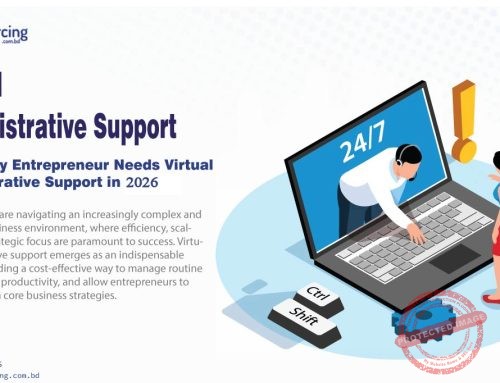Offshore company formation refers to the process of creating a company in a jurisdiction other than the one where the company’s owners reside or where its primary operations take place.
Offshore company formation is often used by businesses and individuals seeking to take advantage of these favorable conditions to minimize their tax liabilities, protect their assets, or conduct business in a more flexible and cost-effective manner.
However, offshore company formation can be a complex process that requires careful planning and consideration of legal, tax, and regulatory factors.
Offshore companies can be used for a variety of purposes, including holding assets, trading goods and services, invoicing clients, and managing intellectual property.
Let’s talk about it further down!
Is an Offshore Company Formation Service Essential
The use of an offshore company formation service can be essential for individuals or businesses seeking to establish an offshore company. Whether or not an offshore company formation service is essential will depend on the individual company’s needs and goals.
Companies looking to establish a presence in a foreign jurisdiction may benefit from a company formation service, which can provide the required knowledge and resources to guarantee compliance with all applicable laws and regulations.
Additionally, an offshore company formation service can help to reduce the amount of time and effort required to set up a business in a foreign jurisdiction. A company formation service can provide guidance on the best corporate structure for a given business and can advise on the most appropriate jurisdiction for it.
However, whether or not an offshore company formation service is essential will depend on the individual company’s needs and goals. While an offshore company formation service can be helpful, it is not necessarily essential in all cases.
The worldwide offshore drilling market was worth USD 31.26 billion in 2018 and is expected to be worth USD 56.97 billion by 2026, growing at a 7.9% CAGR during the forecast period.
Latest Trends and Developments in Offshore Company Formation Service
Some of the latest trends and developments in offshore company formation services include
1. An Increased focus on compliance
In recent years, there has been a growing emphasis on compliance in the offshore company formation industry. This includes increased scrutiny of service providers by regulators.
2. Expansion into new markets
Offshore company formation services are increasingly targeting new markets, including emerging economies and regions with a growing demand for these services.
3. Use of technology
Many offshore company formation service providers are utilizing technology to simplify the process of establishing and administering offshore corporations. This involves the use of internet platforms and tools that allow clients to access and manage their businesses from anywhere.
4. Increased competition
As the offshore company formation industry has grown, so too has the level of competition among service providers. This has led to more significant differentiation and specialization among providers.
5. Focus on sustainability and social responsibility
As consumers and investors place higher importance on sustainability and social responsibility, offshore company creation services are beginning to promote these objectives.
In 2020, the number of newly registered enterprises – limited liability companies (LLCs) – declined in 58% of countries, while it climbed in only 42% of economies, compared to 2019.
Offshore Company Formation: Key Considerations for Tax Planning
When considering company formation for tax planning purposes, there are several key considerations to keep in mind. These include:
1. Choosing the right jurisdiction
Tax rates, rules, and legal frameworks differ amongst offshore countries. It is critical to select a jurisdiction that provides advantageous tax circumstances for the sort of company activity you intend to conduct.
2. Understanding tax residency
Is an important factor to consider while forming a firm. Understanding the tax residency regulations in both the offshore jurisdiction and the nation where the firm’s owners reside is critical to ensuring that the company is tax-efficiently established.
3. Understanding tax treaties
Many offshore jurisdictions have tax treaties with other nations, which can affect how cross-border transactions are taxed. Understanding these tax treaties is critical when forming a firm.
4. Staying compliant
It is essential to ensure that the company formation is structured in a compliant manner, with all relevant tax and regulatory requirements met. Failure to comply with local laws and regulations can result in penalties, fines, and reputational damage.
5. Seeking professional advice
Offshore company formation for tax planning purposes can be complex, and it is important to seek professional advice from a tax expert or company formation service provider to ensure that the process is structured in a tax-efficient and compliant manner.
Statistics on How Many New Businesses Start Each Year
The US Business Formation Statistics (BFS) report that 5.07 million business applications were submitted in 2022. This is a 6.2% yearly decline and the first decline in business application volume since 2018.
The number of new company application submissions has usually increased over the previous ten years, with the exception of the fall of 2022. 2.58 million new business applications were made in 2012. After five years, in 2017, this number has grown by 24.1% to 3.2 million.
The most significant increase over the previous ten years, according to these new business figures, was in 2020 when the total number of applications increased by 24.6% to 4.38 million.
According to the most recent new business data from 2023, 851,457 new business applications were filed in the first two months. This is a 0.52% yearly drop compared to the same time in 2022.

Conclusion
Offshore company formation can be an excellent option for businesses looking for a more efficient way to manage their finances, reduce their tax liability, and gain access to a wide range of business opportunities.
It is important to note, however, that offshore companies are subject to certain restrictions, regulations, and reporting requirements, and it is important to research and seek professional advice before making any decisions.





